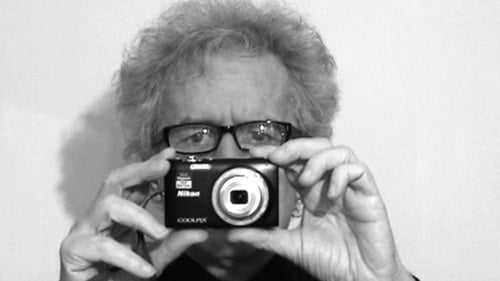Raphaël Bassan
Nacimiento : 1948-08-26, Burgas, Bulgaria
Historia
Raphaël Bassan (born 1948) is a French film critic and journalist who has specialized in experimental film and the history of cinema. He has also made three short movies.

Self (archive footage)

Himself
Les Deux Lucy is a short documentary portrait of the shooting of Raphaël Bassan's film Lucy en miroir. It's the opportunity for us to look at one of our contemporary filmmakers and important film critics of what we call in French cinémas differents, meaning a different way of making films. Our making of offers the opportunity to follow, step by step, the making of this short film with scenes shot on the set, and to listen to comments by the filmmaker about his work.

Producer
The fortuitous meeting of two women to the identical first name, Lucy, who formerly loved the same man, Jonathan, induced, in this film, of the polysemous variations on the memory, art, and the difficult relationship between creation and emotional life. Dehumanized by an exclusive artistic practice, the man lost his reference marks little by little. "Lucy en miroir" wants to be, also, a shifted and transverse second reading of "The Contempt" ("Le Mépris") of Godard, by a step more plastic than analytical or conclusive.

Writer
The fortuitous meeting of two women to the identical first name, Lucy, who formerly loved the same man, Jonathan, induced, in this film, of the polysemous variations on the memory, art, and the difficult relationship between creation and emotional life. Dehumanized by an exclusive artistic practice, the man lost his reference marks little by little. "Lucy en miroir" wants to be, also, a shifted and transverse second reading of "The Contempt" ("Le Mépris") of Godard, by a step more plastic than analytical or conclusive.

The Narrator (voice)
The fortuitous meeting of two women to the identical first name, Lucy, who formerly loved the same man, Jonathan, induced, in this film, of the polysemous variations on the memory, art, and the difficult relationship between creation and emotional life. Dehumanized by an exclusive artistic practice, the man lost his reference marks little by little. "Lucy en miroir" wants to be, also, a shifted and transverse second reading of "The Contempt" ("Le Mépris") of Godard, by a step more plastic than analytical or conclusive.

Director
The fortuitous meeting of two women to the identical first name, Lucy, who formerly loved the same man, Jonathan, induced, in this film, of the polysemous variations on the memory, art, and the difficult relationship between creation and emotional life. Dehumanized by an exclusive artistic practice, the man lost his reference marks little by little. "Lucy en miroir" wants to be, also, a shifted and transverse second reading of "The Contempt" ("Le Mépris") of Godard, by a step more plastic than analytical or conclusive.

Self

N°41
Reel 5 of Gérard Courant's on-going Cinematon series.


N°41 / N°1736 / N°2050
Cinématon is a 156-hour long experimental film by French director Gérard Courant. It was the longest film ever released until 2011. Composed over 36 years from 1978 until 2006, it consists of a series of over 2,821 silent vignettes (cinématons), each 3 minutes and 25 seconds long, of various celebrities, artists, journalists and friends of the director, each doing whatever they want for the allotted time. Subjects of the film include directors Barbet Schroeder, Nagisa Oshima, Volker Schlöndorff, Ken Loach, Benjamin Cuq, Youssef Chahine, Wim Wenders, Joseph Losey, Jean-Luc Godard, Samuel Fuller and Terry Gilliam, chess grandmaster Joël Lautier, and actors Roberto Benigni, Stéphane Audran, Julie Delpy and Lesley Chatterley. Gilliam is featured eating a 100-franc note, while Fuller smokes a cigar. Courant's favourite subject was a 7-month-old baby. The film was screened in its then-entirety in Avignon in November 2009 and was screened in Redondo Beach, CA on April 9, 2010.

Producer
An actor and an actress repeat scenes of a film which they must play in their apartment. The filmmaker shoots the tests.

Writer
An actor and an actress repeat scenes of a film which they must play in their apartment. The filmmaker shoots the tests.

Director
An actor and an actress repeat scenes of a film which they must play in their apartment. The filmmaker shoots the tests.

Director
“Le Départ d’Eurydice” (1969) is a metaphor of the time, a sort of "documentary allegory" on the 60 s and on its “underground bohemia“. In spite of its impressionist and fragmentary aspect, in a poetic and musical structure, the film includes some narrative elements. A young writer hesitates between the love for his girlfriend and the obedience to the command of the “guru” of an artistic group which requires of him, like pledge of fidelity, to kill his love partner. He executes the Death ritual in front of the sea…but in vain.


Himself
A day by day diary of Raphaël Bassan's Lucy en miroir. Dominik Lange followed the shooting of Lucy en miroir for a year. He restructures the material of the film itself and confers to Promenades champêtres an astonishing poetic vision. The shots are often slow and hypnotic. The mystery of this new film does not take its roots in a cinematographic or a literary tradition like in Raphaël Bassan's film, but in life itself. Every day life is magnified by Dominik Lange's camera-eye which restructures the sequences and gives his film a different, yet complementary vision, of Lucy en miroir.










